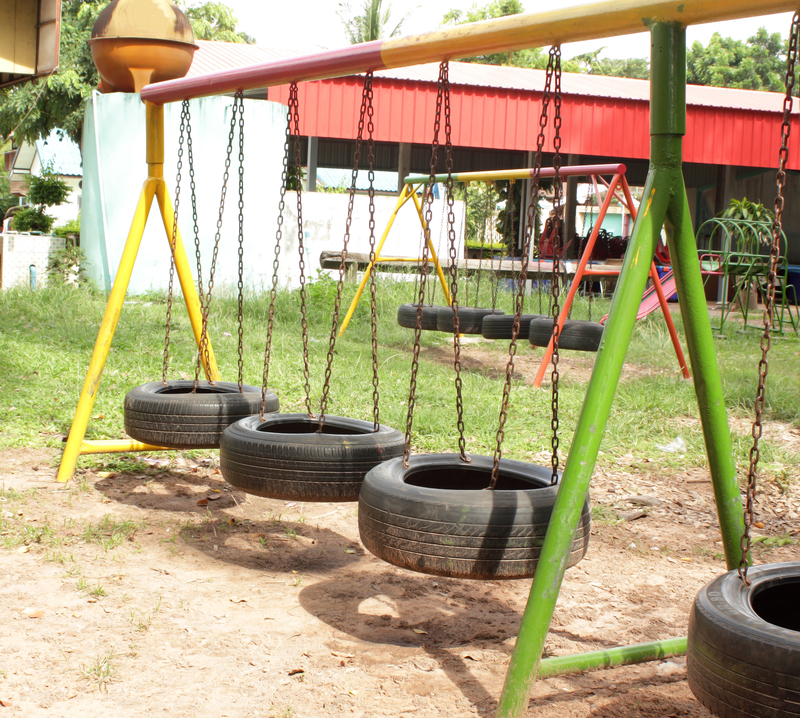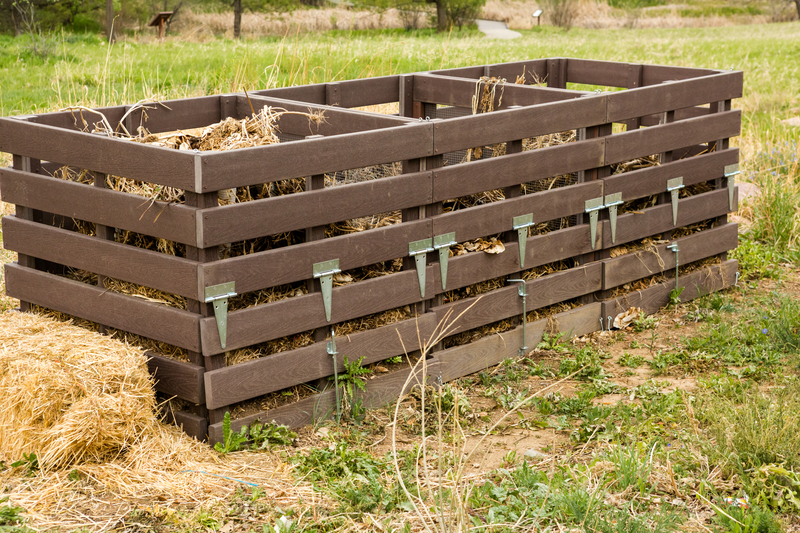How Local Recycling Centers Handle PPE Waste Responsibly
The surge in the use of Personal Protective Equipment (PPE) such as masks, gloves, face shields, and gowns during the global pandemic has generated a unique challenge for local recycling centers. With environmental sustainability a growing concern, the responsible handling of PPE waste has never been more critical. This comprehensive article explores the innovative strategies, protocols, and responsible methods employed by community recycling centers to manage PPE waste effectively, safeguarding public health and minimizing environmental impact.

Understanding PPE Waste: Types and Concerns
What Constitutes PPE Waste?
PPE waste comprises a variety of items designed to protect individuals from infection and contamination. These commonly include:
- Masks: Disposable surgical masks, N95 respirators, and cloth masks.
- Gloves: Single-use nitrile, latex, or vinyl gloves.
- Gowns and Aprons: Disposable or reusable coverings used in healthcare settings.
- Face Shields and Goggles: Eye and face protection made from plastic or other materials.
While these items play a crucial role in safety, their improper disposal presents significant *environmental hazards*. PPE materials often contain plastics and non-biodegradable substances, which can persist in ecosystems for decades if mishandled.
Environmental and Health Impacts of PPE Waste
Unchecked PPE pollution leads to multiple *adverse effects*:
- Wildlife hazards: Animals may ingest or become entangled in discarded PPE.
- Microplastic pollution: Breakdown of synthetic PPE contributes to microplastic contamination of water and soil.
- Potential disease spread: Contaminated PPE can harbor pathogens, posing health risks to sanitation workers and communities.
- Landfill overloads: Improperly managed PPE exacerbates landfill capacity issues and greenhouse gas emissions.
Given these risks, it becomes essential for local recycling facilities to implement robust practices for the responsible management and disposal of PPE waste.
The PPE Waste Collection Process
Separate Collection Bins for PPE
Most community recycling centers have established specific protocols for PPE waste, starting with segregation at the source.
- Special bins: Clearly marked, color-coded receptacles designated solely for PPE disposal to prevent contamination of regular recyclables.
- Drop-off points: Conveniently located containers at medical centers, public areas, and recycling centers.
Safe PPE Collection and Transportation
Workers trained in the proper handling of infectious and hazardous waste collect PPE from dedicated bins. To enhance safety, they use appropriate PPE themselves and follow disinfection protocols. The waste is transported in sealed, leak-proof containers to minimize exposure during transit.
PPE Waste Handling Protocols in Recycling Centers
Sorting and Initial Inspection
Once at the local recycling facility, PPE waste undergoes an initial inspection. During this phase:
- Manual sorting: Trained teams separate potentially recyclable PPE (like certain masks and face shields) from non-recyclable or heavily contaminated materials.
- Automated sorting: Some advanced centers use robotics and AI-based vision systems for efficient sorting while minimizing human contact.
Heavily soiled or contaminated PPE is designated for high-temperature disposal, while safe, uncontaminated items proceed for further processing.
Sanitization and Disinfection Procedures
To neutralize infectious agents, PPE waste is subjected to:
- Heat treatment: Autoclaves apply high heat and pressure, effectively killing bacteria and viruses.
- Chemical disinfection: Sprays or immersion in approved disinfectant solutions.
This critical step protects recycling workers and downstream facilities during subsequent handling phases.
Recycling and Disposal Techniques for PPE Waste
Recyclable PPE Materials
Despite challenges, some types of PPE are suitable for recycling at local centers:
- Polypropylene (PP) masks and shields: Can be shredded, melted, and transformed into plastic pellets for manufacturing new products.
- Rigid plastics: Parts from face shields and goggles may be processed alongside other plastics after thorough cleaning.
These recycling efforts help divert large quantities of plastic waste from landfills and give old PPE a new life as construction materials, furniture, and non-food packaging.
Composting Biodegradable PPE
The market is seeing growth in biodegradable PPE made from materials like cornstarch or cellulose. Local recycling programs with composting facilities can accept these items, breaking them down into eco-friendly compost with other organic waste.
Safe Incineration for Non-Recyclable PPE
For contaminated or non-recyclable PPE, high-temperature incineration is often the most responsible choice. Modern incinerators equipped with pollution-control technology reduce emissions of harmful gases and ash, converting hazardous waste into inert residues.
Landfill Management as a Last Resort
When incineration or recycling is impractical, PPE waste may be securely buried in sanctioned landfills. Local centers ensure these materials are contained in well-managed cells with leachate protection to prevent soil and groundwater contamination.
Innovations in PPE Waste Management at Local Recycling Centers
Leading-Edge Technologies
Forward-thinking recycling centers are adopting new technologies to boost the responsible treatment of PPE waste, including:
- Pyrolysis: A process that thermally decomposes plastics into synthetic fuels, recovering energy while minimizing landfill dependency.
- Plasma gasification: A high-energy process that converts waste into clean syngas and solid slag, suitable for even high-risk medical PPE.
- Mechanical recycling: State-of-the-art sorting and melting machines for reclaiming clean plastics from PPE with minimal environmental cost.
Community Partnerships and Take-Back Programs
Some recycling centers collaborate with:
- Hospitals and clinics: Coordinating pick-up and separation of healthcare PPE waste.
- Local businesses and schools: Placing PPE recycling bins and running awareness drives.
- Manufacturers: Initiatives to design more recyclable and sustainable PPE products.
These comprehensive approaches ensure PPE is responsibly handled from initial use to final processing.
Public Education and Community Engagement
Why Public Involvement Matters
Responsible PPE waste management demands active participation from the entire community. Local recycling centers develop educational campaigns to boost public awareness of:
- Proper PPE disposal methods--using designated bins and drop-off points rather than general trash or recycling containers.
- The environmental impact of PPE and how individual actions contribute to community health.
- The importance of source separation for more effective recycling and safer waste handling.
Clear Signage and Online Resources
Centers provide easy-to-understand signage at collection points and offer comprehensive guides via websites and social media, enabling residents to stay informed about best practices and new developments.
Regulations and Compliance Ensuring Responsible PPE Waste Handling
Government Guidelines
Local recycling centers operate under strict regulations set by government and environmental agencies such as:
- Environmental Protection Agency (EPA)
- Centers for Disease Control and Prevention (CDC)
- State and municipal waste management authorities
These laws mandate safe collection, transportation, and processing to minimize public health risks.
Health and Safety Training for Staff
Frequent training ensures recycling center employees understand *best practices* in PPE handling, use of protective gear, and emergency response protocols in case of spills or contamination.
Case Studies: Successful Local PPE Recycling Initiatives
Pilot Projects Turning Masks into Pavement
Communities such as those in Melbourne, Australia, and parts of Europe have launched pioneering efforts to shred and recycle single-use masks, blending them with aggregate materials for road construction. This not only diverts PPE from landfills but demonstrates the innovative potential of sustainable waste solutions.
Small-Scale Plastic Reclamation Programs
Several U.S. towns have established local programs that compact used PPE and send them to specialized facilities, where plastics are melted and turned into pellets for manufacturing park benches or fencing.

The Future of Responsible PPE Waste Recycling
Design for Circularity
The movement towards a circular economy is encouraging PPE manufacturers to consider recyclability from the design stage. Future products may integrate:
- Biodegradable materials: Making composting viable at more recycling centers.
- Single-material construction: Simplifying sorting and recycling.
- Embedded recycling codes: Helping users and facilities quickly identify compatible recycling streams.
Policy and Community Action
Policy changes, economic incentives, and continuous community education will further empower local recycling centers to handle PPE waste responsibly, reinforcing their role as environmental stewards.
Conclusion: The Critical Role of Local Recycling Centers in PPE Waste Management
The responsible management of PPE waste is a shared responsibility that involves producers, consumers, public agencies, and most critically, local recycling centers. By adopting rigorous protocols, investing in new technologies, and engaging the community, these centers are at the forefront of protecting both public health and the environment. Ongoing efforts in innovation and education promise to create a sustainable future where PPE waste is handled safely--not just during pandemics, but as a core element of resilient waste management systems.
Join your community's efforts--learn how your local recycling center handles PPE waste, and do your part to support responsible, environmentally friendly PPE disposal!
